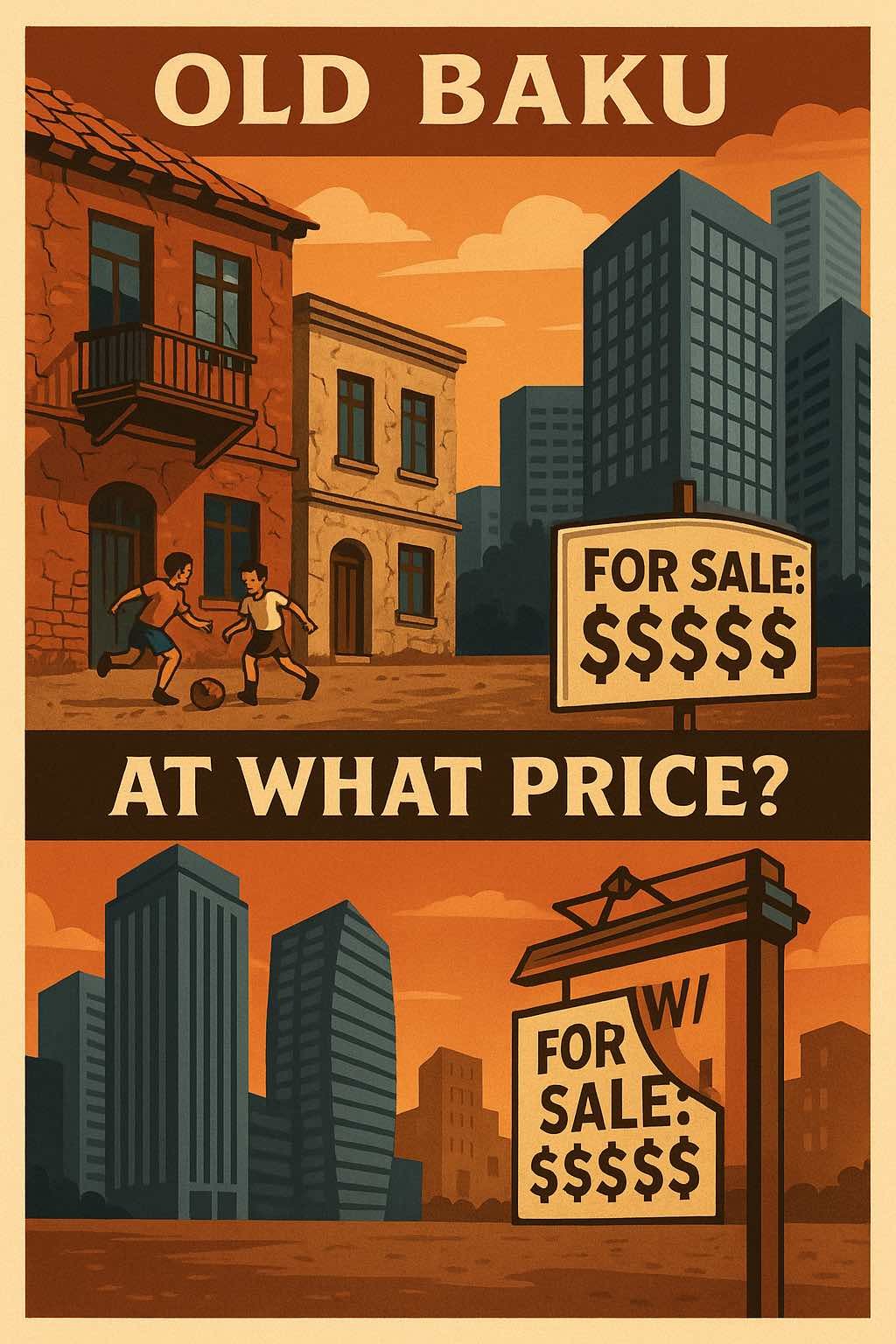Baku, August 24 — The capital of Azerbaijan is preparing for large-scale demolitions of old and unsafe residential buildings, a move city officials say is aimed at modernizing the urban landscape but one that is already sparking concerns over housing prices.
At a meeting in the Baku City Executive Authority, held under President Ilham Aliyev’s directives, officials announced the creation of a special commission tasked with identifying high-risk zones and planning demolition works. The commission will focus on outdated, hazardous buildings that no longer meet safety standards or fit the city’s long-term development plan.
“Baku will be reshaped according to the Master Plan approved in 2021,” real estate expert Elnur Farzaliyev told Kaspi. He noted that many unsafe structures have already been torn down to make way for new roads, parks, and administrative buildings. Compensation for residents is provided in cash or with replacement apartments.
Historic Buildings vs. Modern Needs
Farzaliyev emphasized that historical sites remain protected. In Yasamal, where demolitions are under way in the old “Sovetski” district, mosques, bathhouses, libraries, and heritage buildings are being preserved. “That area will be transformed into a park while historic architecture from the 16th to 19th centuries will remain as a protected zone,” he said.
Smaller demolitions are also reported in Nasimi district, with more large-scale projects expected in the near future.
Safety vs. Affordability
Experts underline that while demolitions remove dangerous housing stock, they also push up prices. “Old apartments were much cheaper than new ones,” Farzaliyev explained. “Once they are demolished, supply shrinks, and new buildings come at higher costs. This inevitably drives both rental and sales prices up.”
According to estimates, one-room apartments in old buildings previously rented for around 300–350 manats, far below the 800–1,000 manats now common in new high-rise developments.
Which Districts Will Be Most Affected?
Real estate analyst Anar Nasirov said priority will be given to buildings in emergency condition. Current demolition hotspots include Nasimi, Yasamal, and Narimanov districts, though more neighborhoods may be added.
He also noted that residents are entitled to either financial compensation or relocation into new apartments. “All agreements must be settled through negotiation — if not, the cases go to court,” he said.
Rising Market Pressure
Nasirov warned that every demolition round creates an upward push in property prices. “When families receive compensation, they return to the market as buyers. More buyers mean higher demand — and inevitably higher prices,” he said.
While officials argue that the demolition program is a long-overdue safety measure, urban planners caution that without adequate affordable housing policies, Baku could see a widening gap between residents displaced by demolitions and the skyrocketing cost of new apartments.


